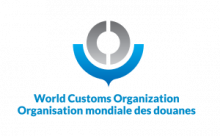

NEWS
Inaugural COLIBRI Steering Committee Meeting held at WCO Headquarters
On 16 November 2023, the World Customs Organization (WCO) hosted the inaugural COLIBRI II Steering Committee Meeting at its Headquarters in Brussels. This three-hour hybrid session brought together representatives from the WCO, the European Union (EU), partner administrations and various international initiatives. The discussions revolved around lessons learnt from Phase I of the COLIBRI…
General Aviation training
From 3 to 7 October 2022, GIFP component COLIBRI organised an in-person training on monitoring and controlling General Aviation (GA) in Accra, Ghana. A total of 51 officials from Ghana and The Gambia participated in this week-long training.
The opening ceremony on 3 October was attended by the Deputy Commissioner of Operations from the Customs Division of the Ghana Revenue Authority,…
COLIBRI GEOPORTAL HAS BEEN PRESENTED TO THE WCO TECHNOLOGY CONFERENCE
On 18 October 2022, more than 1,200 participants from 136 countries attended the 2022 WCO Technology Conference and Exhibition in Maastricht, the Netherlands. Some 600 additional delegates joined the event online. During the next three days, under the theme “Driving Customs performance with data and technology in the changing landscape of global trade”,…
Who we are
THE WORLD CUSTOMS ORGANIZATION

The World Customs Organization (WCO), established in 1952 as the Customs Co-operation Council (CCC), is an independent intergovernmental body whose mission is to enhance the effectiveness and efficiency of Customs administrations.
Today, the WCO represents 183 Customs administrations across the globe, which collectively process approximately 98% of world trade. As the global center of customs expertise, the WCO is the only international organization with competence in customs matters and can rightly call itself the voice of the international customs community.
For more information about the WCO visit the web site.
PARTNERS
The Illicit Flows Programme of the European Union

For more than ten years, the Cocaine and Heroin Route Programmes of the European Union has strived to address the challenges of an often fragmented law enforcement approach along established illicit trafficking routes into the EU.
From origin to destination, countries located along illicit trafficking routes often suffer harmful consequences that affect daily life. Fostering violence and corruption and undermining good governance, illicit trafficking jeopardises national security and economic prosperity, leads to public health problems and causes significant environmental damage.


